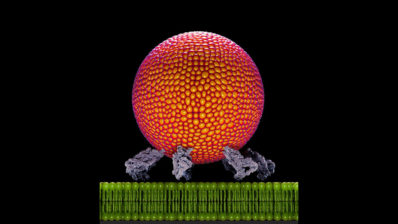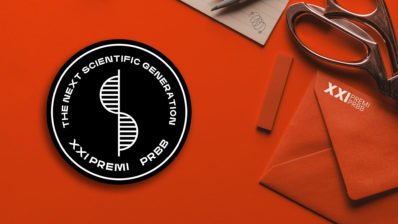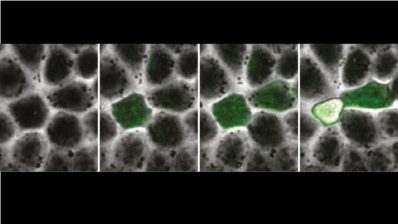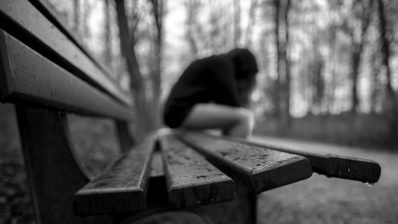The Catalan biologist Ana Maria Cuervo, currently co-director of the Einstein Institute for Aging Research in New York, came on November 21 and 22 to the annual symposium organized by the Department of Experimental and Health Sciences, Pompeu Fabra University (DCEXS-UPF).
Ana Maria is an international expert in aging and protein degradation. She studied Medicine at the University of Valencia, before moving to the United States — first to Boston and then to New York, where she currently works.
During her visit to the Barcelona Biomedical Research Park (PRBB), she granted us an interview. You can watch the interview video (in Spanish) and read an extract below.
You study ‘cell cleaning’. What is that?
It is what our cells do every day; cleaning and getting rid of the damaged or toxic proteins we have inside. We can do this through several systems, such as autophagy, which is a mechanism that puts everything that does not work (the ‘garbage’) in lysosomes to get rid of it.
Aging is a key factor in many different diseases — what is the link between aging and this process?
We have seen that what happens with aging is not that we generate more damaged proteins; but that these cell recycling systems do not work properly and are not able to eliminate these proteins, so they accumulate. That is, a person with Alzheimer’s may have had a lifelong mutation, but was able to eliminate the mutated protein… until – with age – the system stops working properly. With genetic studies in mice we have seen a great improvement when we restore this cleaning ability of cells in old mice. Currently, we are developing chemical compounds capable of restoring this cleaning system.
“As we age, cell recycling systems do not work properly and damaged or toxic proteins accumulate. We have restored the system at a genetic level in mice, with promising results”
Are we talking about a future youth pill?
Maybe… But I think there are other things we can do before, such as changing behavior habits.
Which habits could help us against aging?
Nothing new: eating less, sleeping more and practicing moderate-intensity exercise. But let me tell you why. Cells constantly need energy; if they have no nutrients, cells still have to work, so they start looking for anything they can recycle in order to obtain energy. And they take whatever is damaged, so they do this ‘cleaning’.
That is why it is good to eat less, so that cells are ‘hungry’ and activate the recycling system. The same happens with exercise, it makes cells need more energy. And finally, sleep is also important, because at night it is when the cleaning system works best.
Cells constantly need energy; if they have no nutrients, they recycle damaged proteins or organelles, ‘cleaning’ themselves.
My uncle is 102 years old and he says that, during the war, he was very hungry… So, is that the secret?
Unfortunately, yes! The only intervention that has been proved to work in order to live longer is caloric restriction: eating 60% less of the calories we eat. But it’s hard for people to do that… The good news is that we have now seen that the same benefit can be obtained by eating the same amount but distancing more our meals; for example, eating only twice a day. It’s what they call “food clocking”. Spending 16h without eating is the same as eating less; cells get hungry and start recycling whatever they can…
And do we really want to live longer…?
Rather than just living longer, the idea is to extend the time you are healthy. If instead of starting getting ill often and feeling weak at 65, we did at 80, it would be great! The idea is to think of our current old age not as a time where you can’t do anything and must be taken care of, but as a life period as productive as any other.







